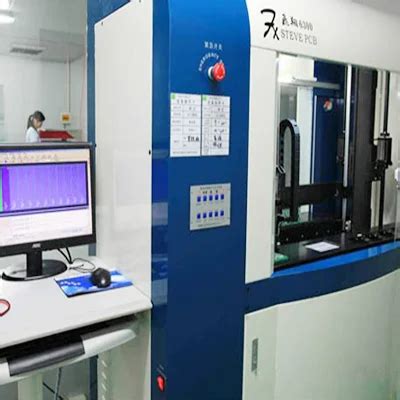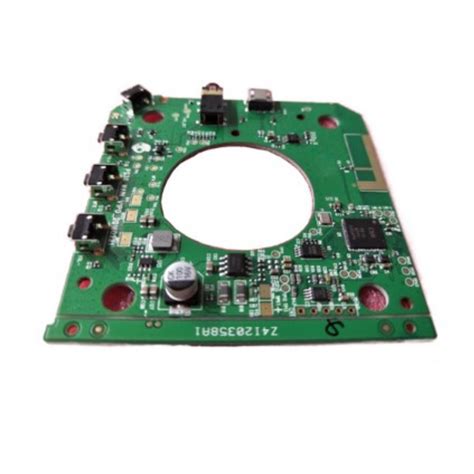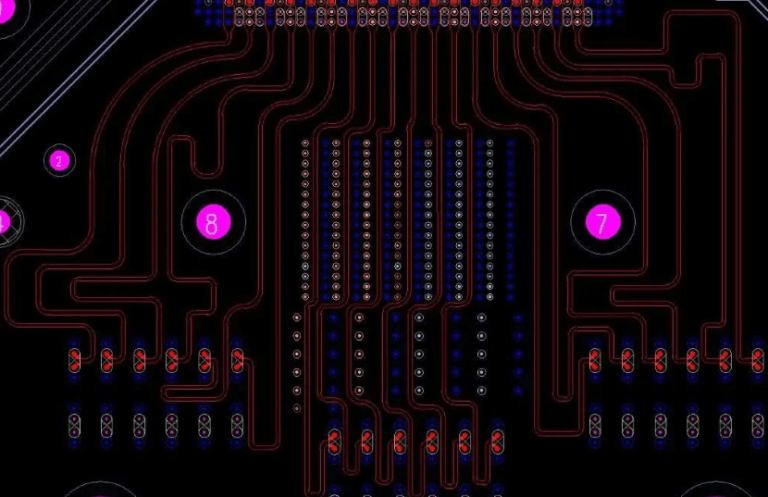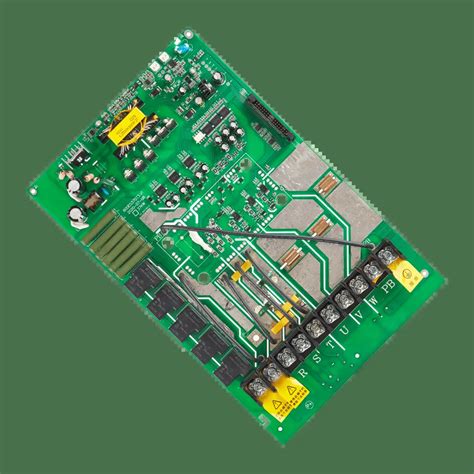Arlon PCB: High-Endurance Materials for Critical Electronics
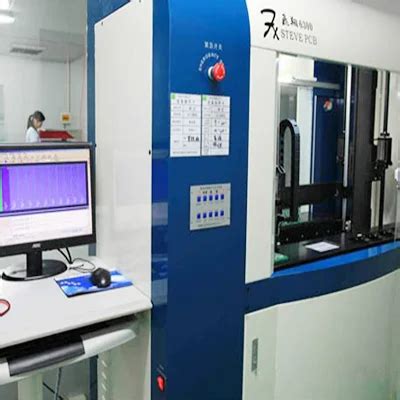
Key Takeaways
When evaluating PCB manufacturing companies for mission-critical applications, you need materials that withstand extreme conditions while maintaining performance. Arlon’s thermoset substrates excel in high-endurance scenarios, offering superior thermal stability and mechanical strength compared to standard FR-4 laminates. This makes them ideal for aerospace, military, and industrial systems where reliability is non-negotiable.
Tip: Always prioritize thermal management and chemical resistance when selecting materials for harsh environments—these factors directly impact long-term durability.
Here’s how Arlon addresses key challenges in PCB manufacturing:
| Factor | Arlon’s Advantage | Typical Competitors |
|---|---|---|
| Thermal Stability | Sustains performance up to 180°C | Degrades above 130°C |
| Moisture Resistance | Near-zero absorption in humid conditions | Prone to delamination |
| PCB Manufacturing Cost | Optimized for lifecycle value | Lower upfront cost, higher replacements |
By focusing on mission-critical requirements, Arlon minimizes long-term PCB manufacturing business risks, such as unplanned downtime or component failure. Their materials also streamline assembly processes, reducing hidden costs associated with rework. For industries where failure isn’t an option, investing in high-performance substrates isn’t just a choice—it’s a necessity.
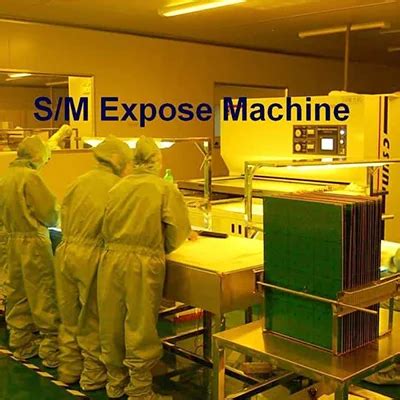
Arlon PCB Materials Overview
When selecting materials for PCB manufacturing, understanding the substrate’s performance under stress is critical. Arlon PCBs utilize thermoset-based laminates engineered to withstand extreme thermal cycling, chemical exposure, and mechanical strain—factors that directly impact PCB manufacturing cost over a product’s lifecycle. Unlike standard FR-4 materials, Arlon’s substrates maintain stable dielectric properties even in fluctuating environments, reducing failure risks in aerospace, military, or medical devices.
For PCB manufacturing companies prioritizing reliability, these materials offer a strategic advantage. Their low thermal expansion coefficient minimizes warping during assembly, which is vital for high-density designs common in high-performance electronics. This durability translates to fewer field replacements, lowering total ownership costs for mission-critical systems.
In the PCB manufacturing business, balancing material quality with production efficiency is key. Arlon’s formulations streamline processing through compatibility with standard lamination and drilling techniques, avoiding the need for specialized equipment. This adaptability makes them a practical choice for applications demanding industry-leading endurance without compromising scalability. By integrating these substrates early in design, engineers can mitigate risks associated with harsh operating conditions—a theme explored further in the following sections.
Thermoset Substrates in Electronics
When designing electronics for demanding environments, the choice of substrate material directly impacts performance and longevity. Thermoset substrates stand out due to their exceptional thermal stability and resistance to chemical degradation, making them ideal for mission-critical systems. Unlike thermoplastic alternatives, these materials retain structural integrity under extreme temperatures—a non-negotiable feature for aerospace, military, or industrial applications.
For PCB manufacturing companies, selecting thermoset materials like those from Arlon ensures boards can withstand prolonged stress without warping or delamination. This becomes particularly evident when evaluating PCB manufacturing cost over a product’s lifecycle: while initial material expenses may be higher, reduced failure rates and maintenance needs offset long-term operational expenses. Additionally, thermoset substrates enable tighter tolerances in high-frequency circuits, a priority for industries requiring precision.
If your PCB manufacturing business focuses on reliability, integrating thermoset substrates aligns with stringent quality standards. Their low dielectric loss and moisture resistance make them indispensable in harsh environments, from automotive engine controls to downhole drilling equipment. By prioritizing materials that balance durability with electrical performance, you position your solutions as trusted partners for engineers tackling the most challenging design requirements.
Why Choose Arlon PCBs?
When selecting materials for PCB manufacturing, reliability in extreme conditions is non-negotiable. Arlon’s thermoset substrates excel where standard materials fail, offering unmatched thermal stability and resistance to mechanical stress. For PCB manufacturing companies, this translates to boards that withstand prolonged exposure to high temperatures, corrosive environments, or intense vibration—critical for aerospace, military, and medical devices.
Balancing PCB manufacturing cost with performance is a constant challenge. Arlon’s engineered solutions minimize long-term expenses by reducing failures and maintenance needs, even if initial material costs are higher. This durability ensures your PCB manufacturing business avoids costly recalls or redesigns, preserving both reputation and profitability.
Moreover, Arlon’s substrates support precision signal integrity and high-frequency performance, essential for 5G infrastructure or advanced radar systems. By partnering with a supplier that prioritizes rigorous testing and compliance, you secure components that meet or exceed industry benchmarks. Whether you’re designing for aerospace or industrial automation, Arlon’s focus on innovation ensures your applications perform reliably under the harshest conditions.
PCB Innovations for Harsh Environments
When designing electronics for extreme conditions—whether aerospace, military systems, or industrial automation—you need PCB manufacturing solutions that prioritize durability over conventional performance. Harsh environments demand substrates capable of withstanding thermal shock, chemical corrosion, and mechanical stress without compromising signal integrity. This is where advanced materials like Arlon’s thermoset laminates redefine reliability. Unlike standard FR-4 boards, these substrates maintain dimensional stability even at temperatures exceeding 260°C, making them ideal for applications where failure isn’t an option.
For PCB manufacturing companies, balancing PCB manufacturing cost with long-term performance is critical. Arlon’s engineered materials reduce the need for frequent replacements, lowering total lifecycle expenses in mission-critical systems. Their proprietary formulations also minimize signal loss in high-frequency operations, a key advantage for 5G infrastructure or radar systems. When evaluating PCB manufacturing business strategies, integrating such high-endurance materials ensures compliance with stringent industry certifications while future-proofing designs against evolving environmental challenges. By prioritizing innovation over short-term savings, you secure both operational continuity and competitive differentiation.
High-Endurance PCBs for Demanding Uses
When operating in environments where temperature extremes, vibration, or chemical exposure threaten reliability, standard PCB manufacturing processes often fall short. This is where high-endurance materials like Arlon’s thermoset substrates redefine performance thresholds. Unlike standard FR-4 boards, these substrates maintain signal integrity under stress, making them indispensable for aerospace, military systems, and industrial automation—applications where failure isn’t an option.
For PCB manufacturing companies, balancing PCB manufacturing cost with durability is a persistent challenge. Arlon addresses this by optimizing material formulations to resist delamination and thermal degradation, reducing long-term maintenance expenses. Their designs also minimize impedance fluctuations, which is critical for high-frequency applications in 5G infrastructure or radar systems.
If you’re managing a PCB manufacturing business, partnering with suppliers that prioritize material science innovation ensures your products meet evolving industry demands. Arlon’s substrates enable thinner, lighter boards without sacrificing robustness—a key advantage when space and weight constraints dominate design decisions. Leading PCB manufacturing companies leverage these properties to deliver solutions that withstand harsh environments while maintaining compliance with stringent quality certifications.
By selecting materials engineered for endurance, you future-proof electronics that operate at the edge of technological and environmental limits.
Arlon’s Quality Standards Explained
When selecting PCB manufacturing companies for mission-critical applications, understanding their quality benchmarks becomes non-negotiable. Arlon’s approach to PCB manufacturing begins with thermoset substrates engineered to withstand extreme thermal, mechanical, and environmental stressors. Their quality standards are rooted in traceable material sourcing and multi-stage validation protocols, ensuring every layer meets aerospace-grade specifications.
For instance, their PCB manufacturing business employs automated optical inspection (AOI) systems to detect micron-level defects, paired with rigorous thermal cycling tests that simulate decades of operational stress. This precision minimizes the risk of field failures, directly impacting PCB manufacturing cost by reducing rework and warranty claims. Arlon’s adherence to ISO 9001 and AS9100D certifications further guarantees consistency across batches—a critical factor when reliability trumps compromise.
You’ll notice their quality extends beyond compliance. By integrating real-time process monitoring, Arlon ensures deviations are corrected before they escalate, a practice uncommon among many PCB manufacturing providers. Whether you’re designing avionics or medical devices, this proactive stance on quality translates to boards that perform under pressure while maintaining lifecycle longevity.
In an industry where margins for error shrink daily, Arlon’s standards don’t just meet expectations—they redefine them.
Comparing Arlon to Competitors
When evaluating PCB manufacturing companies for mission-critical applications, it’s essential to weigh material performance, cost efficiency, and reliability. While many competitors focus on balancing PCB manufacturing cost with basic functionality, Arlon prioritizes thermoset substrates engineered for extreme environments—offering unmatched thermal stability and mechanical endurance. Unlike standard FR-4 materials used by mainstream suppliers, Arlon’s proprietary blends reduce signal loss and withstand prolonged exposure to high temperatures, making them ideal for aerospace, defense, and medical devices.
In the PCB manufacturing business, downtime from material failure can cripple operations. Competitors might offer lower upfront pricing, but their solutions often lack the long-term durability required for harsh conditions. For example, polyimide-based alternatives from other manufacturers may degrade faster under cyclic thermal stress, increasing lifecycle costs. Arlon’s adherence to MIL-spec standards and rigorous testing protocols ensures consistent performance, even when margins for error are nonexistent.
Transitioning between suppliers? Consider how Arlon’s focus on high-frequency laminates and low dielectric constants aligns with advanced applications. While PCB manufacturing often emphasizes volume, Arlon’s niche expertise in specialized materials provides a competitive edge where reliability trumps bulk production.
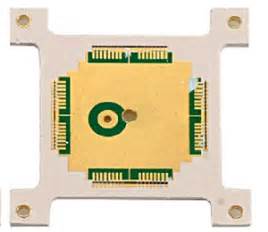
Mission-Critical PCB Solutions
When reliability is non-negotiable, selecting the right PCB manufacturing partner becomes pivotal. Mission-critical applications—think aerospace, medical devices, or defense systems—demand substrates that withstand extreme temperatures, vibrations, and corrosive environments. Thermoset materials from leading PCB manufacturing companies like Arlon ensure stable performance under stress, thanks to their low thermal expansion and high glass transition temperatures.
Balancing PCB manufacturing cost with long-term durability is a challenge, but advanced materials reduce failure risks, minimizing costly downtime or replacements. For businesses in the PCB manufacturing business, this translates to scalable solutions that align with stringent industry certifications, from AS9100D for aerospace to MIL-PRF-31032 for military hardware.
What sets these solutions apart? Proprietary laminates like Arlon’s 85N or 33N series offer unmatched chemical resistance and dimensional stability, critical for multilayer designs in compact, high-power systems. Whether you’re designing satellite communications or industrial automation controls, leveraging these innovations ensures your boards survive where others falter. By prioritizing material science over conventional FR-4 alternatives, you not only meet but exceed the lifespans demanded by mission-critical electronics.
Transitioning to such specialized substrates requires collaboration with manufacturers who understand both technical specs and application-specific stressors—because when failure isn’t an option, neither is compromise.
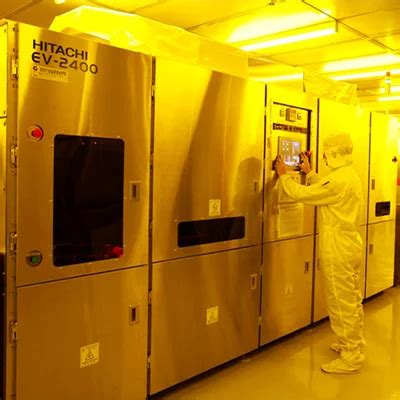
Conclusion
When selecting materials for PCB manufacturing in mission-critical systems, the choice of substrate directly impacts long-term performance. Arlon PCBs stand out by leveraging thermoset technology that maintains structural integrity under extreme thermal and mechanical stress—a non-negotiable requirement for aerospace, defense, and medical applications. While PCB manufacturing companies often prioritize cost efficiency, Arlon’s focus on high-endurance materials ensures that PCB manufacturing cost aligns with value over time, reducing failures and downtime in harsh environments.
For businesses navigating the PCB manufacturing business, balancing reliability with operational demands is key. Arlon’s adherence to industry-leading quality standards guarantees that every board meets rigorous specifications, whether for high-frequency communications or power-dense circuits. By choosing substrates engineered for resilience, you secure not just immediate functionality but decades of dependable service—critical for applications where failure isn’t an option. In sectors demanding uncompromising performance, this approach transforms PCB manufacturing from a routine process into a strategic advantage.
FAQs
What makes Arlon PCBs suitable for mission-critical applications?
Arlon’s PCB manufacturing process uses high-endurance thermoset substrates designed to withstand extreme temperatures, vibrations, and chemical exposure. This ensures reliability in aerospace, defense, and medical systems where failure is not an option.
How do PCB manufacturing companies like Arlon manage costs for complex designs?
By optimizing material selection and leveraging advanced production techniques, Arlon balances PCB manufacturing cost without compromising performance. Their expertise in thermoset materials reduces waste and extends product lifespans, lowering long-term expenses.
Why should businesses prioritize high-quality PCB manufacturing business partnerships?
Collaborating with trusted suppliers ensures access to cutting-edge materials and rigorous testing protocols. For demanding environments, durability and thermal stability are non-negotiable—qualities embedded in Arlon’s manufacturing standards.
Can Arlon PCBs outperform competitors in harsh conditions?
Yes. Their proprietary substrates offer superior signal integrity and mechanical strength compared to standard FR-4 alternatives. This makes them ideal for industries where environmental stressors jeopardize conventional boards.
What certifications validate Arlon’s quality standards?
Arlon complies with ISO 9001, AS9100, and IPC Class 3 requirements, ensuring traceability and consistency—critical for sectors like automotive and telecommunications.
Ready to Elevate Your PCB Solutions?
For tailored PCB manufacturing services that meet rigorous demands, please click here to explore how advanced materials and expertise can enhance your projects.

